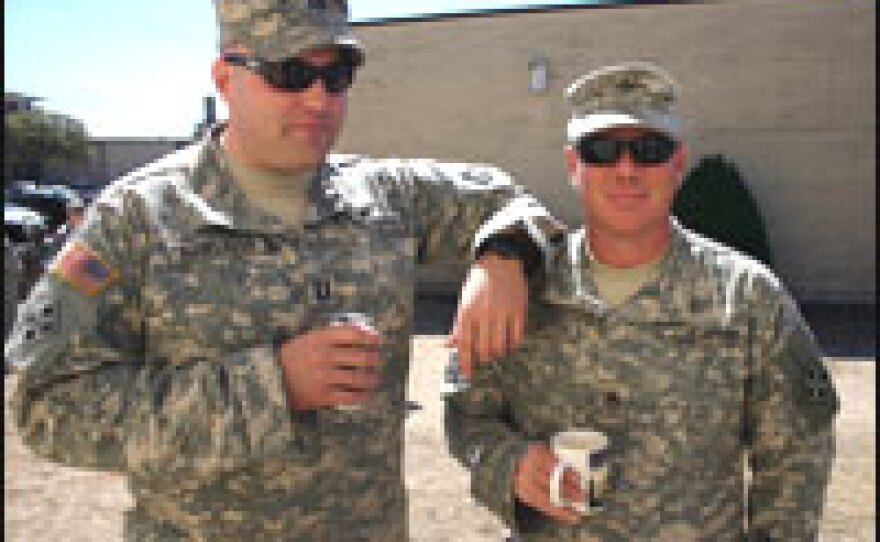
This is the first in an ongoing series about Army Capt. Nate Rawlings' experiences in Iraq. He will file on-air and online dispatches with Day to Day throughout the next year.
When Nate Rawlings returned in 2006 from a 12-month tour in Iraq, he thought his time there was done. The 26-year-old Princeton University alum planned to apply for a graduate film program and develop a career as a director or writer. But, like many of his fellow soldiers, he has been "stop-lossed," caught up in the Pentagon policy of extending tours of duty to bolster troop levels. So Rawlings was obligated to return to Iraq even though he had completed his contractual terms of service.
Writer Whitney Terrell caught up with Rawlings at Fort Hood in Texas before the Army captain shipped out in mid-March for 15 more months in Baghdad — this time in tumultuous Sadr City.
Terrell met Rawlings two years ago, when the writer had embedded in Iraq with Echo Company, 1st Battalion, 22nd Infantry. Terrell followed the soldier around as he disarmed improvised explosive devices, or IEDs. Since then, he has seen Rawlings change dramatically.
"It's like watching a photograph develop before your eyes," Terrell says of Rawlings, who is from just outside Chattanooga, Tenn. "He's different, certainly, than the young man who wrote flowery e-mails back to his Princeton professors, describing moonlight glimmering on the Euphrates, when he first arrived in Iraq. In those letters ... he sounds like a naive college kid, off on an adventure. Now, he's seen things that most professors have only read about, and his language has grown darker, leaner, more direct."
Rawlings still loves a crowd, as he did in his Princeton days. Then, he wrestled, played rugby and was an officer in an eating club called Tiger Inn. "I was in charge of 200 to 300 extremely intoxicated people who liked to do stupid things," he says.
But a one-on-one conversation with the young soldier reveals some of the ghosts who have come to populate his life in the past two years — like the 12 men who died on his last deployment or the college friend with whom he played rugby before both went to war.
"He was wounded in an IED strike ... about a year ago, and he's been recovering" at the San Antonio Military Medical Center, Rawlings says of his friend. "If he's still there when I come home from the next tour, I certainly will visit him. But for now, as I'm preparing myself to go back, I have chosen not to."
Rawlings says he doesn't fear death. "If you die, you die. But being so disfigured that you cannot function" is a worse fate, he suggests. "You just don't want to see too much of what is possible before you have to go, because you know there's a very likely chance you'll see it with yourself and with your men when you're over there on patrols."
Copyright 2022 NPR. To see more, visit https://www.npr.org. 9(MDAzMjM2NDYzMDEyMzc1Njk5NjAxNzY3OQ001))






